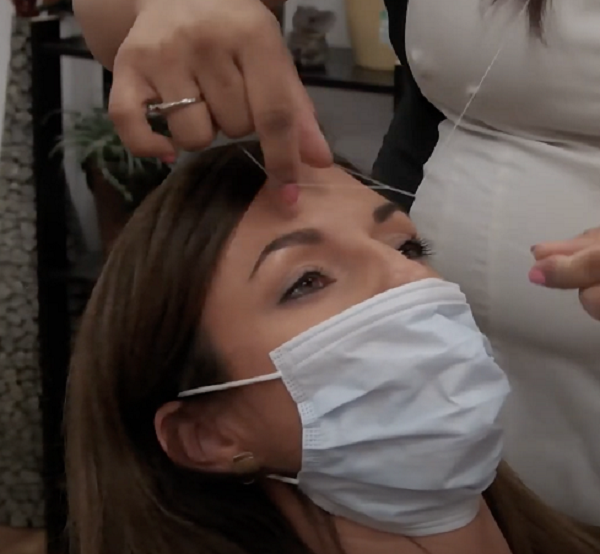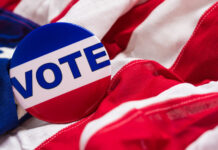Gov. Laura Kelly on Tuesday signed six more bills, including one that could settle a legal dispute over regulations of the practice of eyebrow threading.
Kelly signed a bill backed by the legal arm of the Kansas Policy Institute that exempts the practice of eyebrow threading from the regulations of the state Cosmetology Board.
The bill would allow someone to practice eyebrow threading without being a certified cosmetologist. The bill was amended in the Senate to add electric needles to the list of
items excluded from the definition of threading.
The bill passed despite objections that exempting the practice would expose customers to the risks of unsanitary conditions and infections.
The bill passed in the Senate 32-6 and 110-10 in the House.
The bill stems from a 2020 lawsuit brought by a Johnson County cosmetologist and her family over what they say are excessive regulations for eyebrow threading, a technique that uses a twisted cotton thread to remove unwanted hair.
Jigisha Modi, her husband and mother-in-law filed a lawsuit in Shawnee County alleging that state regulations for threading violate their state constitutional right to “conduct business free from unreasonable governmental interference.”
The lawsuit, which is still pending in district court, contends that the regulations keep Jigisha Modi from hiring her mother-in-law, who has 30 years of threading experience.
The lawsuit says 1,000 hours are required to become a licensed esthetician in Kansas, of which only 40 are devoted to hair removal.
Jigisha Modi, her husband and mother-in-law are represented by the Kansas Justice Institute, which is part of the free-market-oriented Kansas Policy Institute.
The governor also signed five other bills Tuesday, bringing to 52 the number of bills signed into law this year. There are 32 bills waiting to be signed. She’s vetoed four. Here’s what was signed Tuesday:
SB 479: Authorizes the Capitol Preservation Committee to approve plans to place a permanent memorial recognizing the Kansas suffragist movement in the statehouse. Funding for the memorial will be provided through the creation of the Kansas Suffragist Memorial Fund, which will be administered by the Kansas treasurer’s office. The bill passed unanimously in both chambers.
SB 405: Directs the Kansas State Historical Society to convey a 0.52-acre parcel of land in Johnson County to the Shawnee Tribe. The bill says the Shawnee Tribe shall pay all costs related to the conveyance and grants the state a historic preservation easement that will reflect current federal preservation laws regarding properties listed on the National Register of Historic Places. The bill passed unanimously in both chambers.
SB 434: Records that contain captured license plate data or pertain to the location of an automated license plate recognition system would not be covered by the state’s open records law. The bill passed unanimously in the House and 39-1 in the Senate.
SB 451: Removes the requirement that a person must show they are at least 1/16 Native American by blood to receive a free, permanent license to hunt, fish and fur harvest. Currently, the state wildlife department relies on tribal documents submitted by the applicant. The documents come in the form of either a tribal membership card,
which identifies the individual with a photo ID and lists their sanguinity, or a letter, on tribal letterhead, from a tribal leader verifying membership enrollment and sanguinity. All tribes that work with the state to issue permanent licenses already have at least a 1/16th blood quantum requirement in order to be enrolled as a tribal member. The bill passed unanimously in both chambers.
HB 346: Requires raw milk to be sold with a “raw and unpasteurized” label on the bottle when it’s sold on farms. The new requirement came after Kansas raw milk producers won a big legal battle in 2019, when the state conceded that a 1967 law couldn’t restrict marketing of the product. The settlement reached in the legal challenge to the statute allowed farmers to advertise raw milk sales beyond what was previously limited to a sign on the dairy farm’s property. The bill passed 27-12 in the Senate and 119-3 in the House.
















